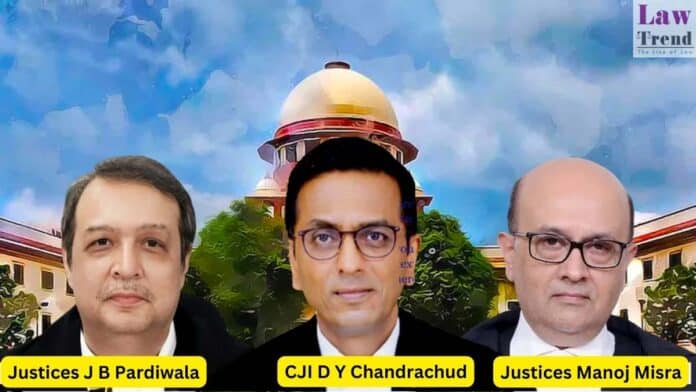The Supreme Court of India, led by Chief Justice D Y Chandrachud and including Justices J B Pardiwala and Manoj Misra, dismissed a plea on Friday that sought mandatory timelines for the disposal of cases across all levels of the judiciary. The plea proposed that all cases, including those in the apex court, be resolved within a period of 12 to 36 months.
During the hearing, the bench highlighted the impracticality of imposing such fixed timelines, emphasizing the vast differences in judicial structure and case volume between India and countries like the United States. “We are not the American Supreme Court,” Chief Justice Chandrachud remarked, in response to the petitioner’s references to judicial timeframes in other nations.
The Chief Justice acknowledged the desirability of timely case resolutions but noted the challenges in achieving such a goal, which would require significant improvements in judicial infrastructure and an increase in the number of judges. He questioned the petitioner’s awareness of the workload faced by the Supreme Court in comparison to its counterparts in the U.S. and other Western countries, where the number of cases handled annually is significantly lower.
Justice Chandrachud further explained that the Indian judicial system is designed to ensure access to justice for all, implying that rigid timelines could potentially restrict this fundamental right. The discussion underscored that the volume of cases handled daily by the Supreme Court of India often surpasses what is seen in many Western courts over an entire year.
The petitioner clarified that his proposal was not intended to limit individuals’ access to the courts but to enhance the efficiency of judicial proceedings. Despite this clarification, the bench concluded that setting such fixed deadlines for case disposal across all courts in the country is currently unfeasible without substantial systemic changes.




